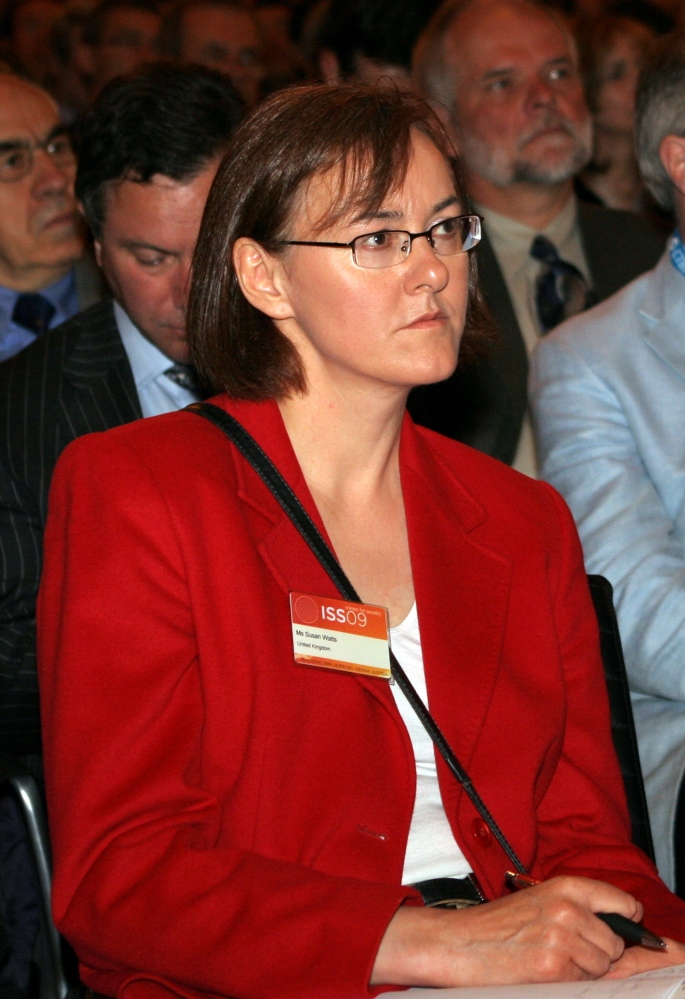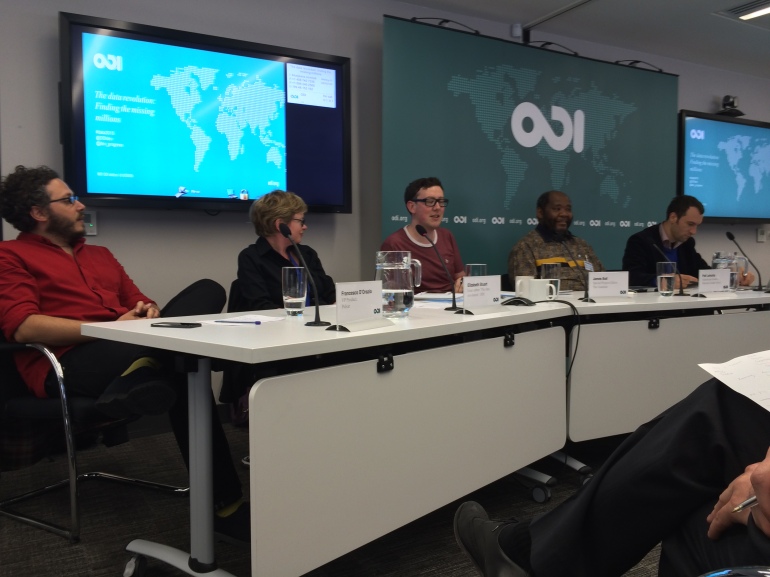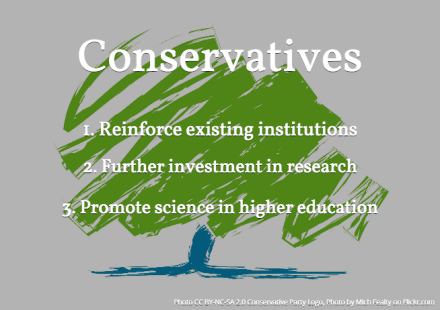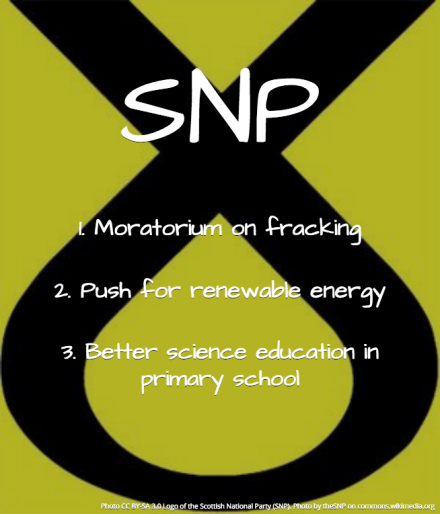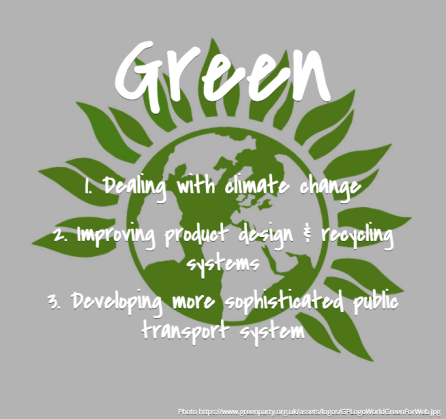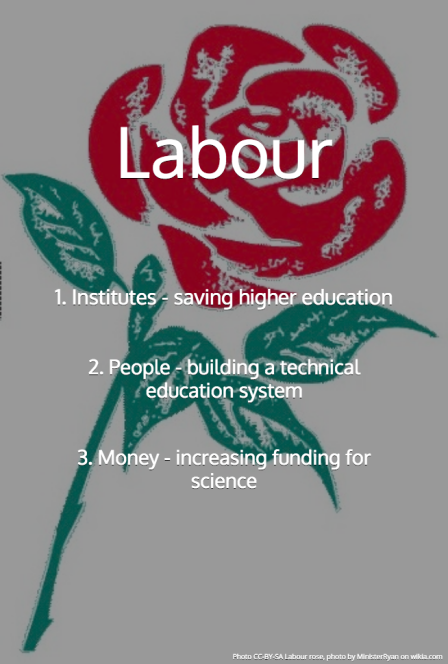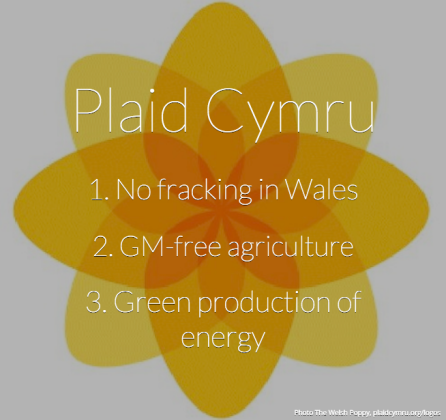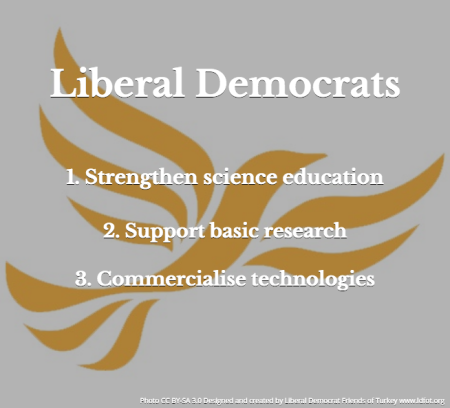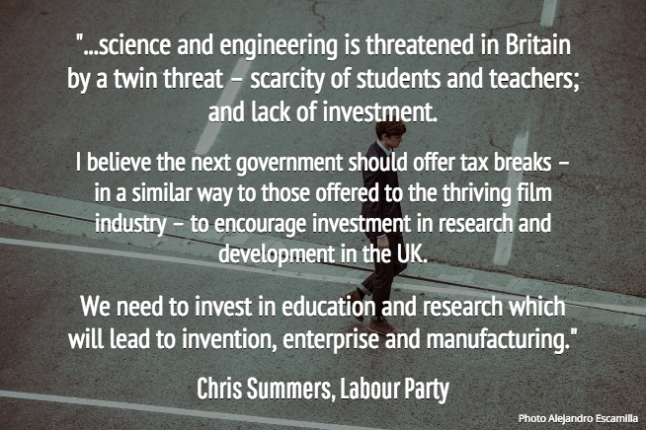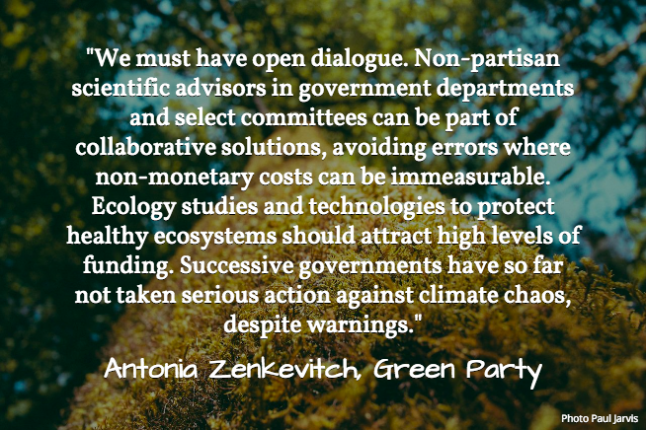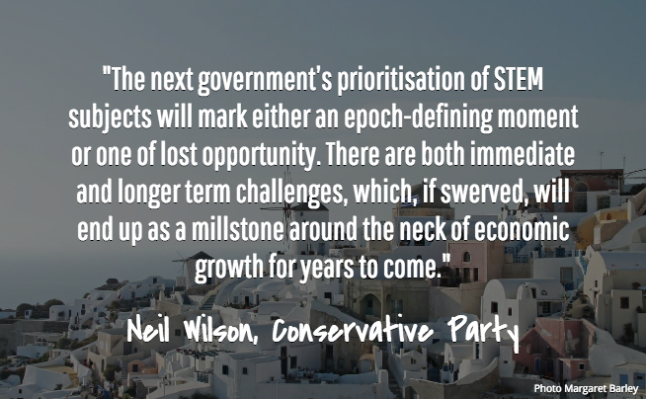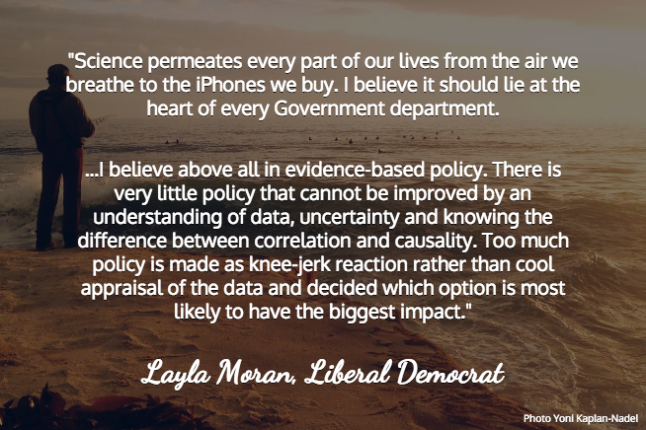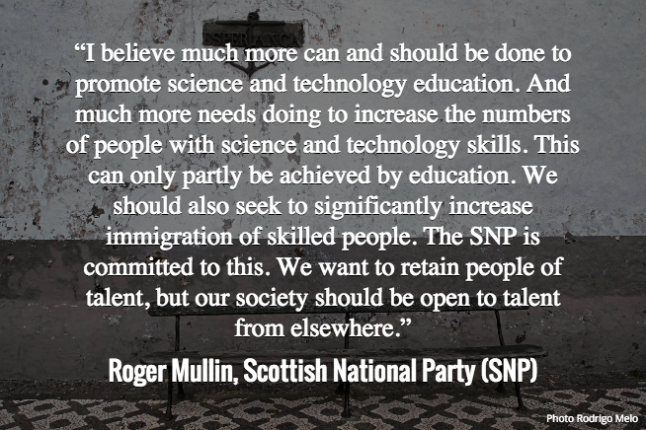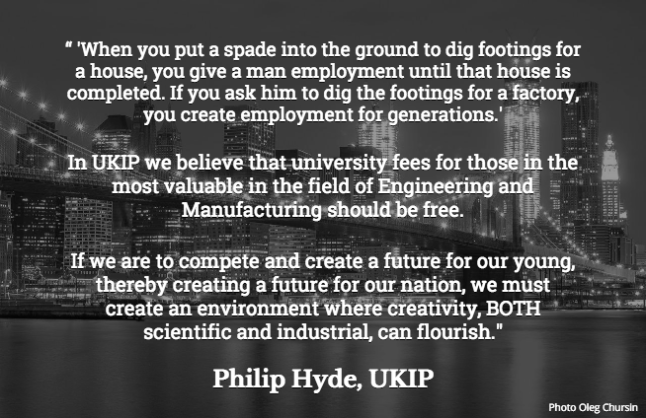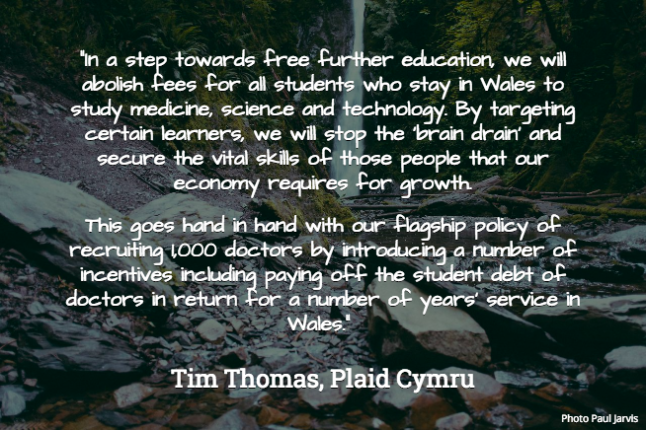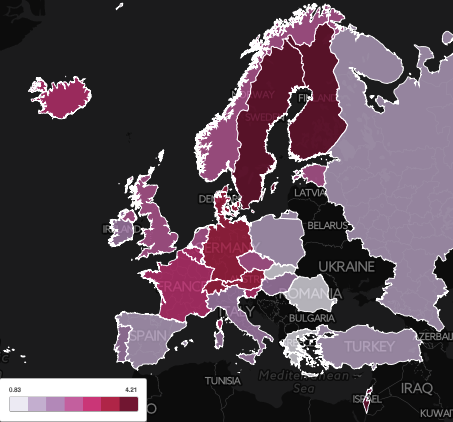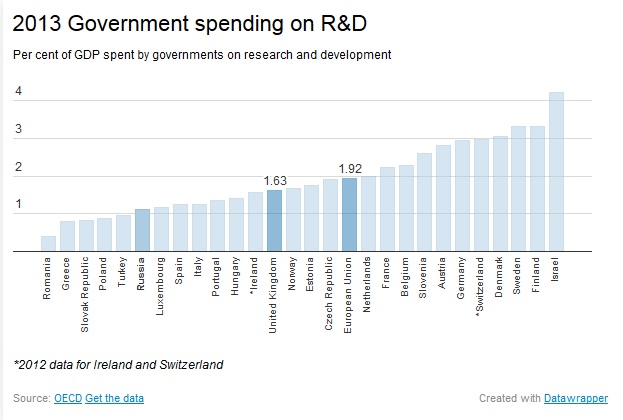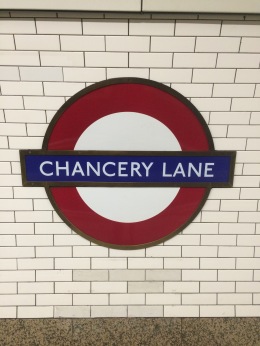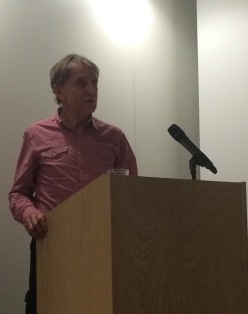Susan Watts is Head of Public Engagement and Communications – MRC Clinical Sciences Centre and former Science Editor of the BBC’s Newsnight programme. She interviewed six science spokespeople (in fact all spokesMEN) from the major political parties before the general election for The British Science Association’s ‘Science Matters’ series.
In his interview, Rt Hon Greg Clark, Conservative MP and Minister for Science, Universities & Cities mentioned the importance of political consensus with regards to science. Watts took that to mean “that we shouldn’t be looking to create division when the parties agree.”
“That’s reasonable so far as it goes, but I don’t really understand the calls for ‘consensus’ on science policy, because in my experience there are plenty of issues in the world of science where a consensus does not exist, and healthy debate is the norm.
Subjects with such a spectra of views include the ethics of xeno-transplantation, the extent of gene-editing technologies, or how best to tackle antimicrobial resistance.
“I suppose I worry that the word consensus might imply that it’s not good to rock the boat, and I think it usually is.”
Budget cuts and growing restrictions on immigration are two other issues which are sure to affect science. A push for commercially-applicable research to support a growth in the economy is likely to be at the forefront of the new Conservative government. While this would be beneficial for some scientists, it could also spell the end for some publicly-funded basic science research projects.
“On the immigration issue, I think that all parties have taken on board the potential for harm to the UK science base of giving the impression that we are not welcoming to the best ideas, wherever they come from.”
need info on how Science policies will affect you? see our @BritSciAssoc films http://t.co/cF6YkL7PNu #ScienceMatters #Election2015
— Susan Watts (@susanwatts01) May 5, 2015
Rt Hon Liam Byrne, Labour MP and Shadow Minister for Universities, Science & Skills said the issues (and potential solutions) with science and politics were as clear-cut as people, institutions, and money.
“Well it’s getting the mix of those right that’s the hard bit, but I would always put my faith in people ahead of institutions and money to come up with the most exciting and valuable science.
But people still need institutions and money to help them to do their best work.”
Several of the science spokespeople used the term ‘pro-science’ in reference to their own views (and the views of their respective parties).
“I’m not sure I know what that phrase means. It would have been a shock (and a story) if any of our Science Matters interviewees had said they were ‘anti-science’.
If it means a promise to listen to the science voice in the cultural mix then that’s critically important to the future of the UK, and welcome.”
Here’s another Mo’ Money Mo’ Science interview with a science journalist.
